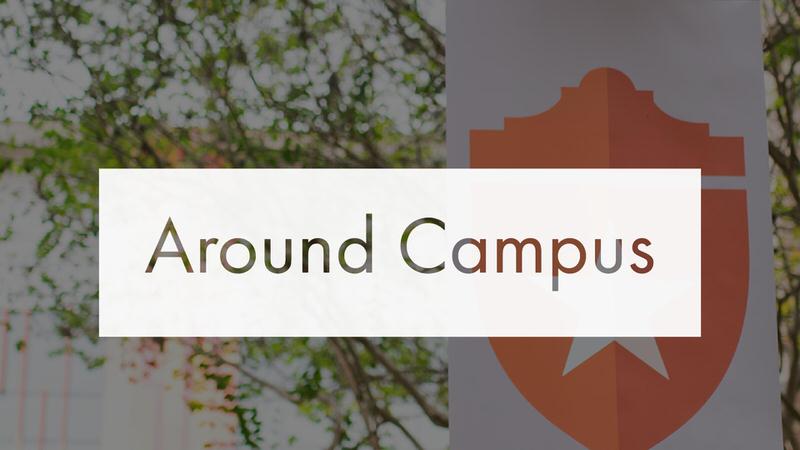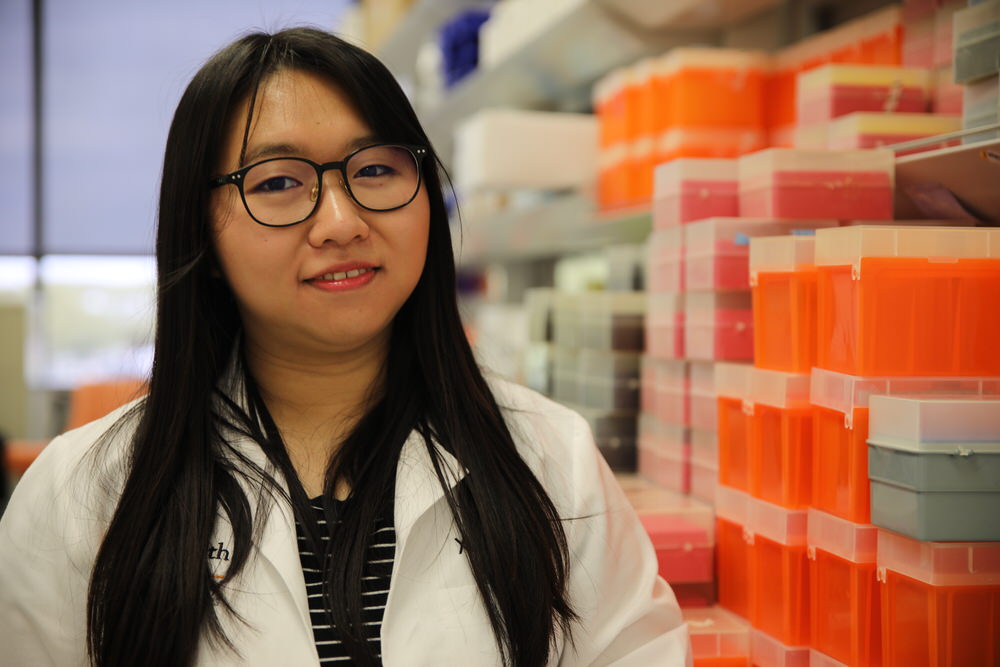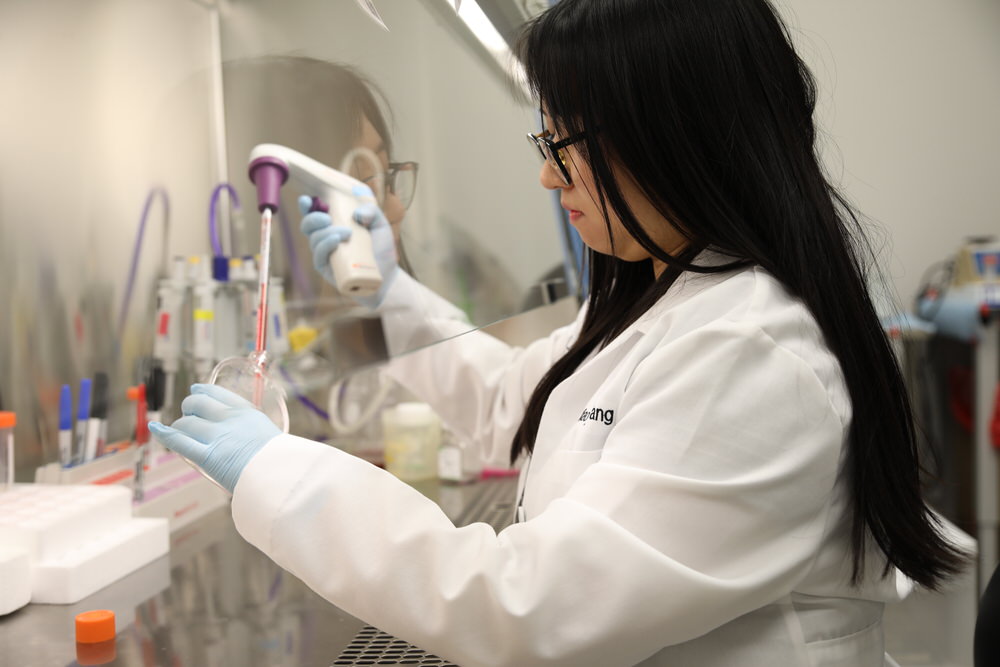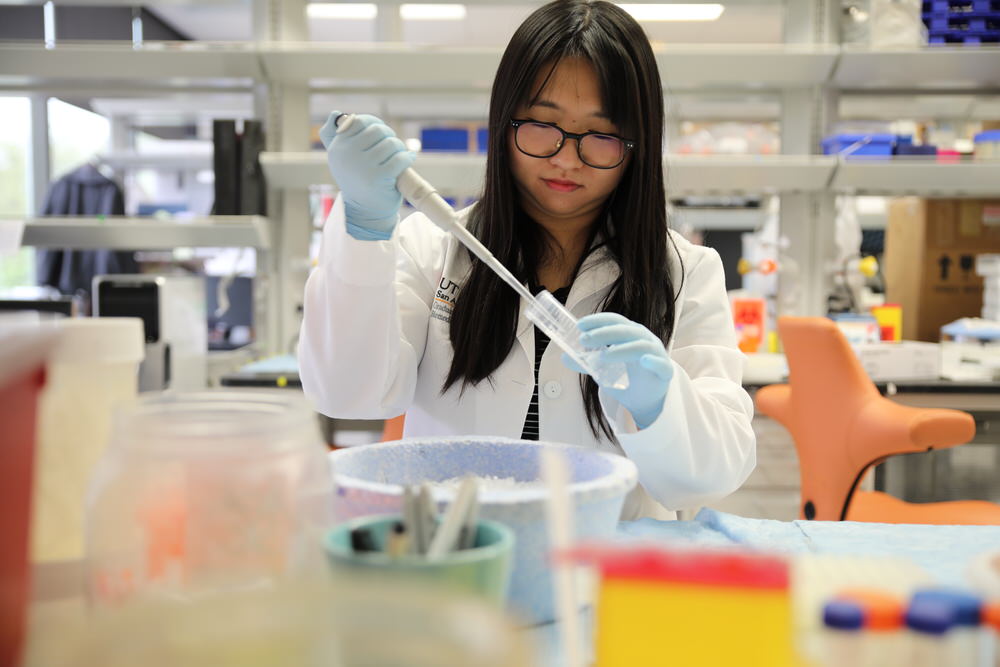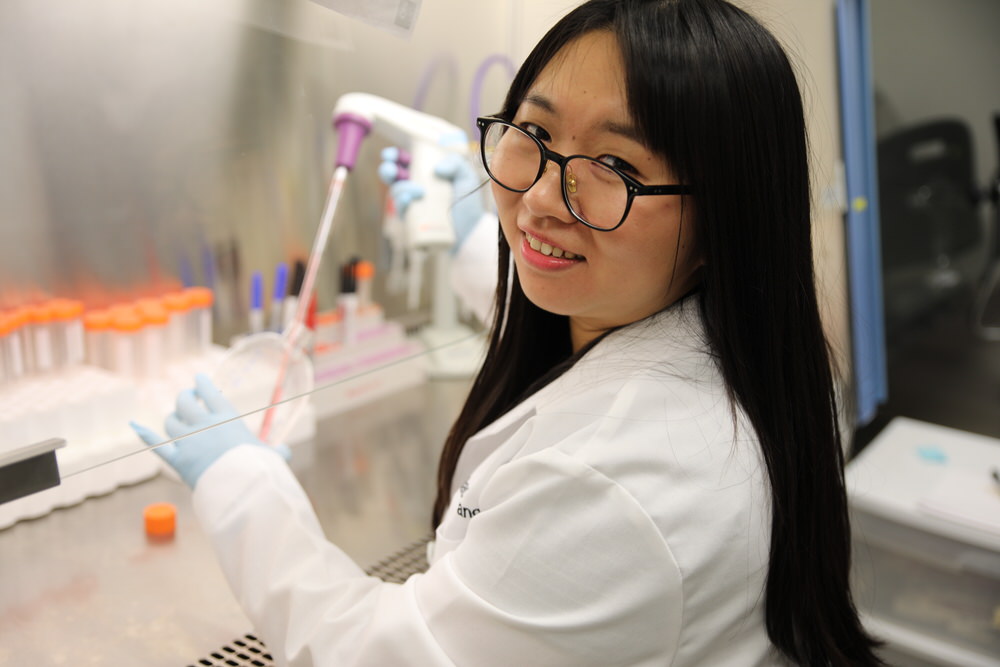Xiaoyu “Jenny” Yang Receives the Horizon Award
Congratulations to Jenny (Xiaoyu) Yang, a 4th year graduate student in the IBMS – Cancer Biology discipline, mentored by Dr. A. Pratap Kumar, who has recently received the Horizon Award from Department of Defense.
Here’s a quick Q&A with Jenny.
1) Tell me about yourself, how did you get interested in science.
My name is Xiaoyu Yang, but everybody calls me Jenny. I was born and raised in Tianjin, a big city near the super-city Beijing, China. People in our hometown often have strong attachments to their birth place, and as a result I am kind of a weirdo studying abroad.
My mom is a chemistry teacher, at a very young age I was able to recite the periodic table without any clue what it means. I would also visit my mom’s organic chemistry lab where all magic (and mess) happened, and that’s how I developed my curiosity in science. My childhood dream was to become an astronaut – although that didn’t happen, I became very interested in nature and life science in high school thanks to my high school teacher. I remembered I was very impressed by the way our fingers are formed: it started like a paddle, then the finger digits were “carved out” by a process called apoptosis, or “cellular suicide,” how smart! Wanting to know more, I decided to choose biology as my major for college. During my college time, I began to think about how research findings are translated into medical applications and further contribute to human life, and have decided to pursue a master’s degree in Biotechnology at Georgetown University.
2) What led you to apply to UT Health San Antonio?
After graduating from Georgetown, I made up my mind to go to the industry and work on drug development. I applied to many jobs, went through some very good interviews, but no job offers. One of the interviewers was very candid to tell me that even though they really liked me, they cannot guarantee a Work Visa, and I cannot stay in the U.S. without it. Aside from this, I’ve also learned that I’ll still need a higher degree for my voices to be heard in the industry. So, I decided to apply for graduate school. I applied to UT Health San Antonio because of the translational and interdisciplinary nature of the IBMS program – I wanted to work on a project related to human diseases, and they are often very complicated and need people with diverse areas of expertise.
3) What is your research project about? Why are you interested in it?
The purpose of my project is to develop a therapeutic regimen with improved efficacy and reduces toxicity for pancreatic cancer patients. Pancreatic cancer has the worst survival rate among all common types of cancer, yet it did not get as enough attention as breast cancer. What makes it worse is that more than half of the patients are diagnosed at advanced stage – the stage that cancer has already spread to distant organs, which makes it impossible to operate. These patients are usually given chemotherapy with bad side effects. And the sad truth is, these treatments don’t last forever. They’re usually able to stabilize the cancer for a while, and stopped working afterwards. As a result, these patients usually only have months to live.
The reason pancreatic cancer is so deadly is in part due to a unique characteristic called desmoplasia. Desmoplasia is the formation of a dense fibrous tissue around the tumor that serves as a barrier for drug delivery. Studies in our lab has been focusing on the most abundant and active cell type in the desmoplastic tissue – pancreatic stellate cells. Through secretion of an amino acid called glutamine, pancreatic stellate cells support the growths of pancreatic cancer cells and assist in the development of therapeutic resistance. Luckily, we have recently identified a natural product, palmatine (PMT), which is derived from the bark of the cork tree, that exhibits less toxicity towards normal cells.
Currently, I am studying if and how will PMT disrupt the communication between stellate and cancer cells and I am working to see if combining PMT with current standard of care are we able to achieve the same or even better results with reduced doses of chemotherapy agents. I am excited to see that treatment of PMT significantly suppresses glutamine-stimulated proliferation and the ability to form tumors colonies. I’m hoping that my work can bring the patients with not only longer but better quality of life.
4) What is the Horizon Award? What does it mean to you to receive this award?
The Horizon Award is a two-year fellowship from the Peer Reviewed Cancer Research Program, Department of Defense, with the goal to improve mission readiness and quality of life by decreasing the burden of cancer on Service members, their families, and the American public.
Receiving the Horizon Award means that I got my stipend and research funding covered for the next two years. But more importantly, it is an important recognition for the effort of me, my mentor Dr. Kumar and our lab members as a team. It also means that we got a good research plan, and all we need to do is to keep it moving forward.
5) What’s next for you?
I’ll be looking for jobs as a research scientist in the pharmaceutical company after graduation. Since I’ve learned that I’m good at explaining science in a simple, non-technical way, I may also explore my options as a medical communication specialist or medical science liaison in the future.

